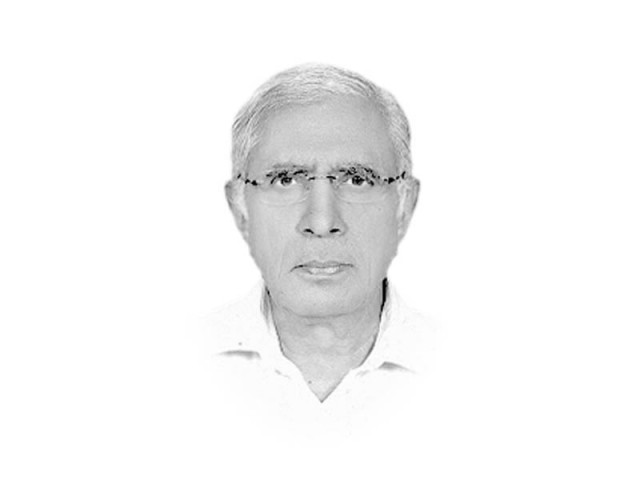Accountants & visionaries
There is no way a security state would become a social-welfare state just by wishing it to be so

The writer served as Executive Editor of The Express Tribune from 2009 to 2014
Every budget is touted as a social-welfare oriented balance-sheet with both the rich and the indigent welcoming it as if once passed, it will make the rich richer and enable the destitute to break through the poverty line and join the middle classes, if not the richer ones, in a matter of 12 months.
That at the end of the year the rich become richer at the cost of the poor, is usually suppressed as a tale by those who are against progress and development in Pakistan. The reason why we have continued to fail in establishing a social-welfare oriented economy in the country despite proclaiming that that is what we are engaged in doing year after year, is because Pakistan has continued to remain a security state since its inception. There is no way a security state would become a social-welfare state just by wishing it to be so. We need to re-think our economic strategies and come up with an economic vision that would ensure our security and at the same time enable the national economy to generate enough ‘Roti, Kapra and Makan’(RKM) for all.
Of course many would derisively reject the mantra of RKM which is associated with the late ZA Bhutto and his PPP. But the fact is, it is no light-weight mantra. Within it is embedded what is today called social capitalism. Bhutto was not an economic visionary. In fact, his nationalisation policy is considered by many to have retarded our growth. But the economic assets that he built during his short rule of four years cannot be matched by any regime, either military or civilian, except to some extent that of Field Marshal Ayub Khan, who preceded him. Bhutto’s daughter Benazir Bhutto was also not an economic visionary, but if one went back to her two short rules one can detect attempts by her to make the best use of Pakistan’s strategic location as a hub of regional commercial activity. She was vehemently opposed on grounds of security. But today we are just about to become a trans-shipment economy because China wants to shorten its reach to world markets from 45 to 12 days. And with Chinese shipments traversing Pakistan round the clock, we can now afford to allow transit trade facility to India without any security reservations.
Published in The Express Tribune, May 27th, 2015.
Like Opinion & Editorial on Facebook, follow @ETOpEd on Twitter to receive all updates on all our daily pieces.















COMMENTS
Comments are moderated and generally will be posted if they are on-topic and not abusive.
For more information, please see our Comments FAQ